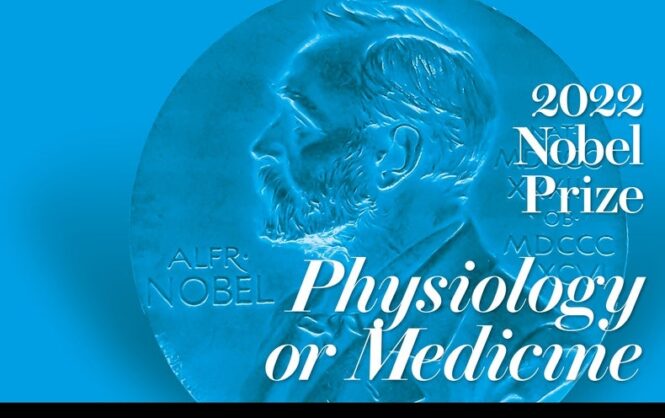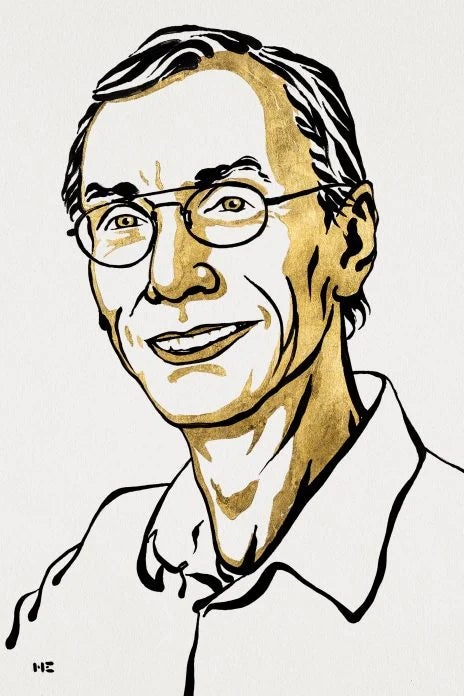
This yr’s Nobel Prize in Physiology or Medication was awarded to Svante Pääbo for his discoveries in regards to the genomes of extinct hominins and human evolution.
Pääbo, a Swedish geneticist and director of the Max Planck Institute for Evolutionary Anthropology in Leipzig, Germany, was honored for his groundbreaking analysis on sequencing the genome of the Neandertals, an extinct relative of people, and discovering a brand new hominin species, Denisovans. He additionally demonstrated that people—Homo sapiens—interbred with these species after migrating out of Africa.
His work addresses necessary questions on humanity’s origins, together with the place we got here from, why some species went extinct and what makes us uniquely human.
“Svante’s work is the definition of pioneering,” says Katerina Harvati-Papatheodorou, a paleoanthropologist on the College of Tübingen in Germany. “It has pushed boundary after boundary over the past couple of a long time, reaching what was beforehand thought of unattainable: not solely recovering historic DNA from fossil bones, but additionally sequencing total genomes of our extinct family and even retrieving their DNA from the traditional sediments of the caves by which they lived.”
Harvati-Papatheodorou says this Nobel “underscores the necessary implication that evolution and historic processes have on folks right now.” And total, she is “glad that the sphere of human origins analysis is receiving this superb distinction and honor.”
Homo sapiens arose in Africa about 300,000 years in the past, analysis suggests. Neandertals (additionally spelled Neanderthals), in the meantime, arose exterior Africa and lived in Europe and western Asia from about 400,000 years in the past till they went extinct roughly 30,000 years in the past. Teams of Homo sapiens left Africa round 70,000 years in the past, and unfold all through the world. They co-existed with Neandertals in Eurasia for tens of 1000’s of years, however little was recognized in regards to the relationship between the 2 teams.

Pääbo was born in Stockholm in 1955, and was all in favour of early human historical past from a younger age. His Nobel-winning analysis initially centered on extracting historic DNA from our closest hominin family, Neandertals. However historic DNA is extraordinarily difficult to check as a result of it degrades into tiny fragments and is definitely contaminated by DNA from different sources.
First, Pääbo centered on mitochondrial DNA—genetic materials discovered within the energy-producing buildings inside our cells. He sequenced mitochondrial DNA from a 40,000-year-old piece of bone and confirmed it was completely different from the mitochondrial DNA of each fashionable people and chimpanzees.
Subsequent, utilizing refined DNA sequencing strategies, he and his colleagues went on to sequence the total Neandertal genome, publishing their findings in 2010. The crew discovered that the latest widespread ancestor of Homo sapiens and Neandertals lived about 800,000 years in the past, and that the 2 species interbred over 1000’s of years. About 1 to 4 % of the genomes of contemporary people of European or Asian descent comes from Neandertals.
Beforehand, researchers had speculated about whether or not fashionable people and Neandertals interbred. “When the primary Neandertal genome [was] sequenced it was a kind of superb moments in science when out of the blue the extent of human data and the scope for additional research had simply grown a lot bigger,” says Sharon Browning, a statistical geneticist on the College of Washington’s Division of Biostatistics. Scientists have since sequenced a number of Neandertal genomes, a Denisovan genome, and genomes from people and animals that lived tens of 1000’s of years in the past, she says, including, “Finding out these genomes has led to very large insights into human historical past, domestication of animals, and evolution.”
Pääbo and his colleagues additionally made the startling discovery of a brand new hominin species, Denisovans. The researchers sequenced the genome of a 40,000-year-old finger bone fragment from Siberia and confirmed that it was distinct from each Homo sapiens and Neandertals. Interbreeding additionally occurred between people and Denisovans, and as much as 6 % of the DNA of individuals in Melanesia and components of Southeast Asia is Denisovan.
This analysis established paleogenomics as a completely new scientific self-discipline. The work revealed a lot in regards to the affect of historic hominins on fashionable people, together with a Denisovan gene that helps fashionable Tibetans survive at excessive altitude and a Neandertal gene that impacts the immune response to infections.
Richard E. Inexperienced, then a postdoctoral scholar in Pääbo’s laboratory, led the examine of the primary sequenced Neandertal genome. When he heard the Nobel information, he was “tremendous glad and somewhat bit stunned,” he says. “Svante was actually the visionary, even from again within the eighties—the one who imagined that DNA could stick round for lengthy, lengthy durations of time,” says Inexperienced, who’s now a professor of biomolecular engineering on the College of California. Pääbo was “all the time centered on the massive image, which is uncommon,” Inexperienced says. When members of the analysis crew steered initiatives, he remembers, “Svante would say, ‘how is that this going to win me the Nobel Prize?’” It appears he was on to one thing.
The findings additionally reveal details about what makes people particular. Like people, Neandertals used instruments. However Homo sapiens developed complicated cultures and artwork, and developed the power to cross open water. Maybe future analysis will unravel the mysteries of why these ancestors died out whereas our species flourished.
“We’re residing with the legacy of Neanderthal genes,” and we’re simply starting to know the results, Inexperienced provides. “It lets us see what makes us uniquely human, and perceive this final, profoundly necessary chapter in human evolution.”
